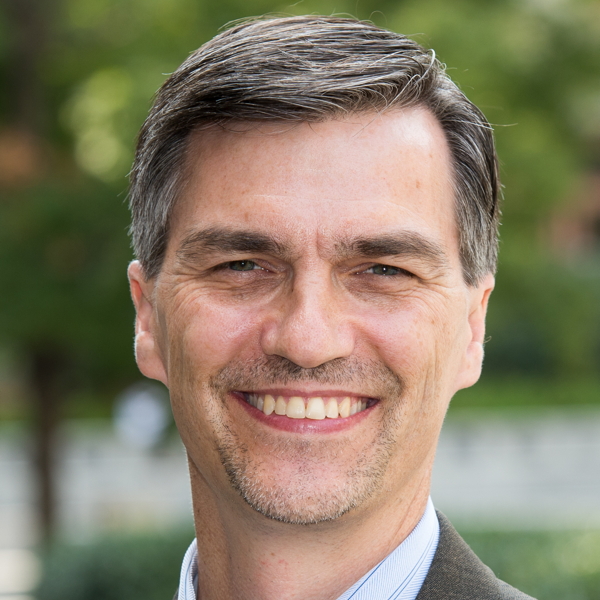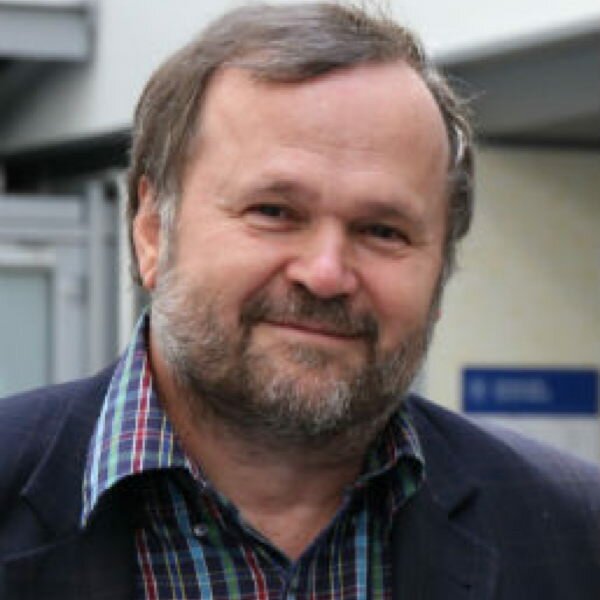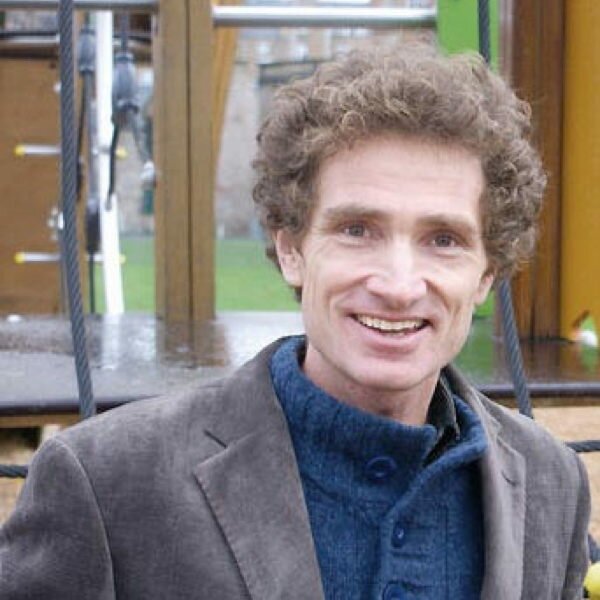The European Conference on Positive Psychology is very pleased to welcome:

Ilona BONIWELL, Ph.D.
Dr Ilona Boniwell heads the International MSc in Applied Positive Psychology (I-MAPP) at Anglia Ruskin University (UK and France). She also teaches positive leadership at l’Ecole Centrale Paris and HEC Business School, as well as consults businesses and educational institutions around the globe as a Director of Positran, a boutique consultancy dedicated to achieving transformation through positive psychology. Dr Boniwell wrote or edited seven books and multiple scientific articles, delivered over 150 keynotes and invited presentations, founded the European Network of Positive Psychology, organised the first European Congress of Positive Psychology (2002) and was the first vice-chair of the International Positive Psychology Association (IPPA). She is a columnist for the Psychologies France, UK and Russia.

Joan L. DUDA, Ph.D.
Professor Duda is internationally known for her expertise on motivational processes and determinants of adherence and optimal functioning in sport, exercise, and dance. One of the most cited researchers in her field with more than 300 publications to her name, she is also an experienced mental skills consultant, working with athletes, coaches/instructors, and other performers at all levels. Joan was Director of a large multi-national EC-funded project (www.projectpapa.org) which aimed to promote quality engagement in youth sport via the delivery of the Empowering Coaching™ programme to grassroots coaches, exemplifying her interests in developing, implementing and evaluating theory-based interventions in healthy and clinical populations across the lifespan. Joan is currently President of Division 12 of the International Association of Applied Psychology and President-Elect of the European College of Sport Science. Joan Duda is Professor of Sport and Exercise Psychology in the School of Sport, Exercise and Rehabilitation Sciences at the University of Birmingham, UK

Sayyed Mohsen FATEMI, Ph.D.
Ph.D., University of British Columbia, 2003, Post Doctorate, Harvard University, 2009-2013) is a Fellow in the department of psychology at Harvard University and works on mindfulness and its psychological implications for cross cultural, clinical and social psychology. He is a frequently published author and has been the keynote speaker of numerous international conferences. He brings mindfulness in his psychological and therapeutic interventions and has run training and coaching programs for clinicians, practitioners and corporate people in North America, Europe and overseas. His publications appear in Springer, Wiley, Cambridge University Press and Oxford University Press and Journals such as APA’s Journal of Theoretical and Philosophical Psychology.
In addition to teaching at Harvard, he has also taught for the department of psychology at the University of British Columbia, Western Washington University, University of Massachusetts in Boston and University of Toronto. He is presently working on the clinical implications of mindfulness for anxiety and stress management.

Barbara L. Fredrickson, Ph.D.
Kenan Distinguished Professor; Department of Psychology and Neuroscience; University of North Carolina at Chapel Hill; Director, Positive Emotions and Psychophysiology Laboratory; President, International Positive Psychology Association. Among the most highly cited scholars in psychology, she is most known for her “broaden-and-build theory of positive emotions,” foundational within Positive Psychology for providing a blueprint for how pleasant emotional states, as fleeting as they are, contribute to resilience, wellbeing, and health.

Neil Garrett, Ph.D.
Neil Garrett is a cognitive neuroscientist at the Affective Brain Lab in the Department of Experimental Psychology, University College London. His research investigates the mechanisms by which individuals learn information about the world and the factors that influence learning processes such as valence (does information represent good or bad news?), clinical disorders (such as Major Depression Disorder) and threat in the environment. His papers have been published in a number of scientific journals including Trends in Cognitive Science, Nature Neuroscience and PLOSone

Claudia SENIK, Ph.D.
Claudia SENIK is Professor of Economics at the Paris School of Economics and the University Paris-Sorbonne. She is also member of the IZA and of the Institut Universitaire de France. Educated at the Ecole Normale Supérieure, she received her PhD from EHESS. Her main research areas include happiness studies, political attitudes and post-transition economies, with a special interest in the subjective welfare effects of income growth and income distribution. She is also involved in a research program on well-being ats work.

Felicia A. HUPPERT, Ph.D.
Professor Huppert is internationally renowned for her work on the science of well-being and the promotion of human flourishing. Her research examines the causes and consequences of well-being across the life course, using data from large population samples, longitudinal cohorts, and intervention programs such as the Mindfulness in Schools Project. Felicia spends part of the year in the UK, where she is Director of the Well-being Institute at the University of Cambridge, and Emeritus Professor of Psychology. She advises the UK Government and international bodies on the measurement of well-being, and on policies to enhance well-being. In addition to a large body of peer-reviewed journal articles, her book publications include the seminal book “The Science of Well-being”, a four-volume set “Major Works in Happiness and Well-being”, and a recent volume “Interventions and Policies to Enhance Well-Being”.

James O. Pawelski, Ph.D.
Dr. James Pawelski is Director of Education and Senior Scholar in the Positive Psychology Center at the University of Pennsylvania. Having earned a doctorate in philosophy, he is leading collaborative efforts to integrate approaches from the humanities and the social sciences for understanding, assessing, and cultivating human flourishing. He is the author of The Dynamic Individualism of William James, editor of the philosophy section of the Oxford Handbook of Happiness, co-editor of The Eudaimonic Turn: Well-Being in Literary Studies, and co-editor of On Human Flourishing: A Poetry Anthology. For more than 10 years, Dr. Pawelski has served as the founding director of Penn’s Master of Applied Positive Psychology (MAPP) program, where he teaches courses on positive interventions and the humanities and human flourishing. He is the president of the William James Society, the founding executive director of the International Positive Psychology Association, and a member of the steering committee of the International Positive Education Network. An international keynote speaker who has given talks in more than 20 countries on six continents, Dr. Pawelski is the recipient of a Practice Excellence Award from the Ministry of Education of the People’s Republic of China, as well as the Humanitarian Innovation Award for the Humanities, Arts, and Culture from the Humanities Innovation Forum at the United Nations.

Willibald RUCH, Ph. D.
Professor Willibald Ruch is a founder member of the International Positive Psychology Association (IPPA) and currently chair of the section of personality and assessment at the University of Zürich, Switzerland. He received his PhD from the University of Graz, Austria in 1980 and later worked at different universities in Germany, the UK and Switzerland. He taught various courses on personality and assessment at different universities (e.g. Düsseldorf, Berlin, Frankfurt, Belfast, Zürich) and he has authored more than 200 journal articles and book chapters and co-edited and co-written five books. Willibald is co-editing or on the editorial board of several journals (including Journal of Individual Differences, Journal of Research in Personality, Journal of Positive Psychology), and co-editor of two book series.
Currently he is working on positive psychology traits (e.g., character strengths and virtues; orientations to happiness, cheerfulness, humor) in adults and children/adolescents and their role in contributing to the good life. He is the founder and current president the Swiss Positive Psychology Association (www.swippa.ch).

Neil THIN, Ph.D.
Neil Thin is a senior lecturer in Social and Political Science at the University of Edinburgh. He specialises in crossdisciplinary happiness research, and in ‘appreciative and aspirational social planning’, i.e. engaging multidisciplinary happiness and wellbeing scholarship in public policy and practice. To this end, he is currently a part-time Parliamentary Fellow in the Scottish Parliament. He also has over 20 years of practical and policy experience working towards the reduction of poverty and promotion of justice and wellbeing in poorer countries, working at all levels from grassroots to governmental and international official agencies. He has frequently served as a social development adviser and trainer for international development agencies such as the UK Department for International Development, UN Agencies, the World Bank, and international NGOs. He is currently a trustee of Befriending Network UK, and for over 10 years he served as a Director/Trustee of Practical Action and also as Chair of Practical Action Publications (formerly ITDG Publications, now incorporating Oxfam Publications). He was also a Director of the Edinburgh Centre for Tropical Forests, Adviser to the Scottish Executive International Development Programme, and to NIDOS, BOND, and the UK National Lottery Charities Board’s International Grants Programme, and the Diana Princes of Wales Fund.

Chiara RUINI, Ph.D.
Chiara Ruini is currently Associate Professor of Clinical Psychology and Director of the Laboratory of Positive Psychology – PoPsyLab- at the Department of Psychology, University of Bologna. Since 2006 she has been teaching the courses “Clinical Applications of Positive Psychology” and the course “Intervention Methods for treating Distress in the Elderly”. She devoted all her career in studying the complex relationship between well-being and distress, particularly in the clinical settings. Chiara Ruini provided seminal work in implementing integrative psychotherapeutic approaches (Well-being therapy) for the promotion of psychological well-being in clinical populations. She has further extended this field of research by applying well-being therapy to the prevention of psychological distress in vulnerable populations (adolescents, young adults and aging individuals). These randomized controlled trials received international attention. Chiara Ruini has authored more than 60 articles published in peer-reviewed international journals, has edited a book entitled “Increasing Psychological well-being across cultures” for the Springer series Positive Psychology across Cultures and serves the Editorial Boards for international Journals such as Psychotherapy and Psychosomatics, the Psychology of Well-being, Theories Research and Practice, The Journal of Happiness and wellbeing.

Robert J. Vallerand, Ph.D.
Professor Robert J. Vallerand is currently Full Professor of Psychology at the Université du Québec à Montréal, where he holds a Canada Research Chair in Motivational Processes and Optimal Functioning, and Fellow of the Institute of Positive Psychology and Education at the Australian Catholic University. He has taught at both the University of Guelph and McGill University. Professor Vallerand is recognized as a leading international expert on motivational processes where he has developed theories dealing with intrinsic and extrinsic motivation and passion for activities. He has published 7 books and over 300 scientific articles and book chapters and has received over 7 millions ($CAN) in research grants. Over 20 of his former students are university professors. Professor Vallerand has served as President of the Quebec Society for Research in Psychology, the Canadian Psychological Association, and the International Positive Psychology Association (IPPA). He has also serves as Consulting Editor for the top journals in the field. Professor Vallerand has received numerous awards and honors from over a dozen learned societies, including being elected a Fellow of the American Psychological Association (as well as Fellow of Divisions 8, 9, 20, 47), the Association for Psychological Science, the Society for Personality and Social Psychology, the Royal Society of Canada, and many others. He has also received the Adrien Pinard Career Award from the Quebec Society for Research in Psychology, the Donald O. Hebb Career Award from the Canadian Psychological Association (the highest research awards in psychology in Quebec and Canada, respectively), and the Sport Science Award from the International Olympic Committee. His latest book is The Psychology of Passion (2015) with Oxford University Press.
